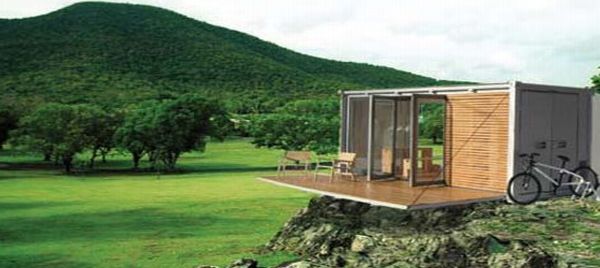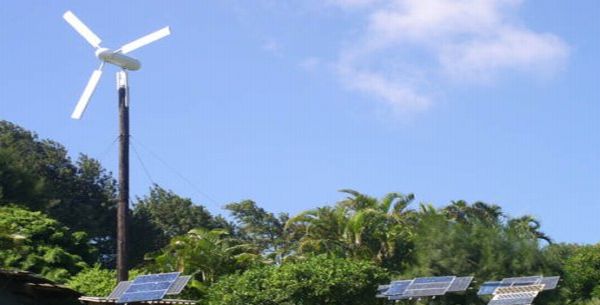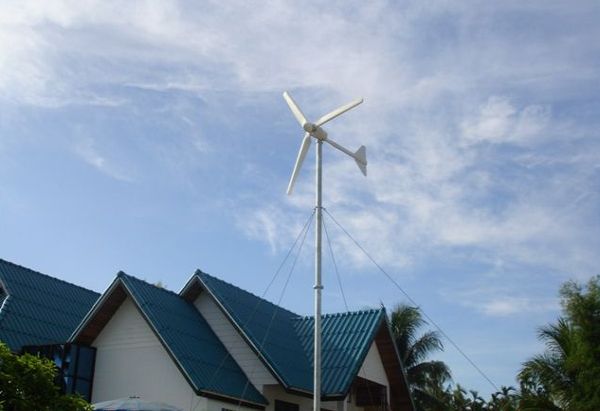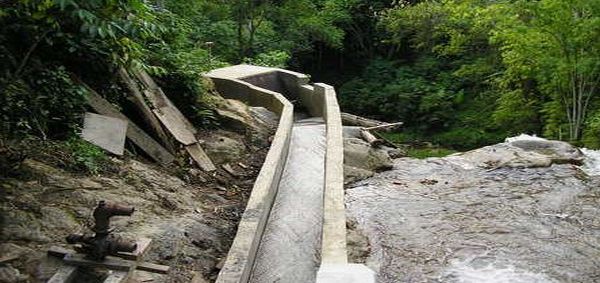 Our modern and fast-paced life is highly dependent on electricity. All through the day we continuously need energy for one reason or the other. We need electricity either for recreation, like watching television, listening to music or dancing, or for cooking using microwave, mixer, etc, or for commuting or for medical treatments or exercises in the gym, etc. In a nutshell, electricity has become a necessity in our lives. We can’t survive without electricity. At the same time, this high dependence also implies high bills and even higher dependency on other people or organizations who produce electricity and serve us. Many people have started exploring living with this dependence by producing their own electricity for fulfilling their requirements. The term off the grid means living in a self-sufficient manner without relying on public facilities. Generally, off-grid power comes from three sources – sun, wind and water. People choose to live off the grid either by opting one source for energy generation or two of them, as per the needs and budget.
Our modern and fast-paced life is highly dependent on electricity. All through the day we continuously need energy for one reason or the other. We need electricity either for recreation, like watching television, listening to music or dancing, or for cooking using microwave, mixer, etc, or for commuting or for medical treatments or exercises in the gym, etc. In a nutshell, electricity has become a necessity in our lives. We can’t survive without electricity. At the same time, this high dependence also implies high bills and even higher dependency on other people or organizations who produce electricity and serve us. Many people have started exploring living with this dependence by producing their own electricity for fulfilling their requirements. The term off the grid means living in a self-sufficient manner without relying on public facilities. Generally, off-grid power comes from three sources – sun, wind and water. People choose to live off the grid either by opting one source for energy generation or two of them, as per the needs and budget.
In theory this seems to be a good idea wherein people tend to get independent for their energy requirements and they are not supposed to use non-renewable sources like fossil fuels, and these methods help in reducing carbon emissions, but there are both negatives and positives attached to this method. Let’s discuss them all here:
The Good:

Benefits of off-grid system:
- Off-grid systems are a real blessing in remote areas. In such areas, installing huge and heavy lines for supply of electricity can never be cost effective and is prone to malfunctions also. A standalone system can meet the energy requirements without making it very expensive for users.
- Many businesses now use off-grid power system for ensuring uninterrupted power supply and making their production efficient.
- Off-grid systems use energy from sun as in solar energy, from wind as in wind power and from water as in hydro power. These sources are renewable sources of energy and do not harm the environment as regular generation of electricity does by using coal. Use of coal for electricity is one of the main reasons behind global warming. Off-grid systems minimize that harmful effect.
- Off-grid systems function through solar panels which are installed on rooftops. These systems do not require any large or extra space in a home setting. They are space efficient.
- The PV technique which harnesses power of the sun can produce sufficient power, and even more than required, if solar panels are rightly placed.
- On the other hand, power generated by wind, known as Micro hydro off the grid power can produce enough power for oneself and the neighborhood, provided wind flow is appropriate and there is some extra space for installation of the sytem.
Can this be better?
Off the grid systems work efficiently only when the natural resources are in abundance. For proper functioning of hydro power there must be a stream in the vicinity with ample amount of water. The equipment too must be of right size according to the available resources. Too big or too small equipment will not produce optimum results. A turbine can work well even if it is installed a few kilometers away from the site of power consumption.
The Bad:

Downside of off-grid system:
While there are many benefits of using off the grid systems, they always do not come without a few disadvantages. They have their own limitations and it is in best interest to know the benefits as well as limitations for the right choice of equipments.
Wind power:
- Wind power works well only when there is adequate speed and frequent wind flow. Without that the system doesn’t work and doesn’t produce cost-effective results.
- Wind turbines tend to create a lot of noise and hence are best for remote, secluded areas, where there are vast uninhabited stretches of land.
- Wind turbines are expensive and they require a sizable number of capital initially. Everyone cannot install them.
- It becomes very important to clean wind turbines on a regular basis because dust particles can affect a turbine’s performance.
Solar power:
Solar panels are expensive and are highly dependent on the amount of light received from sun. On a sunny day there may be adequate energy production but on long gloomy days there may be no power for days together. So only solar power cannot meet the requirements of the household. It needs to be used in combination with either off-grid systems or regular power supply, which is an expensive affair to begin with.
Can this be avoided?
All these problems can be avoided to a large extent if the method of off-grid system is adopted after understanding the requirements and the prerequisites for them. Besides, if the best quality equipments are used for them, functional problems can be avoided but at the same time the entire system gets expensive.
The Ugly:

After discussing all the goodies about the off-grid system, now it is important to discuss their ugly side also. Though it is widely believed that off the grid system are environment friendly, the fact is that they can harm birds and wildlife to a certain extent. It is well known that wind turbines perturb migratory birds and now latest researches say that they can rip off the lungs of flying bats. While it is not documented but it is still evident that huge blades and turbines can seriously disturb local wildlife. The turbines also contribute to sound pollution as they create a lot of noise which is not good for a countryside.
Solar power-based off-grid systems demand constant monitoring and maintenance, not to mention the amount of water that is required by solar plants. Moreover, all this energy is stored in batteries, which need frequent replacements. Hydro power is not a feasible option everywhere. It is ruled out for cities and it is even more difficult to maintain the same output from them all through the year since in summers water tends to reduce from the streams and unless there is copious supply, this system does not work.




